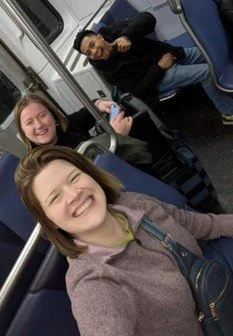Because Reimagining Science Requires Behavioral and Social Scientists at the Table, Too
By Sam Goldstein, Science for Good
Nearly 40% of deaths in the United States are preventable through changes in behavior. Modifiable risk factors like smoking, poor diet, inactivity, or alcohol use are contributors to many cancers. For children and teens ages 1 to 17, the leading cause of death is not disease…it’s gun violence. These are not problems with strictly biomedical solutions. They are deeply embedded in how people live, what they believe, and the environments they navigate every day. This is where behavioral and social science research (BSSR) provides answers. BSSR can examine individual characteristics and the broader contexts that shape health, or our “social determinants of health,” which either promote good health or exacerbate health disparities. Despite its enormous potential to improve lives, BSSR receives only a fraction of the funding and recognition given to biomedical research. In some cases, the use of terminology or phrases related to research on health disparities in a grant proposal have resulted in unfair termination of funding. If we want to understand not only today’s most pressing public health crises, but also the political moment science now finds itself in, we need scientists who ask the why’s and the how’s.
That belief is core to the work we do at Science for Good. As a co-founder of Science for Good, I aim to bridge the gap between public health and traditional science, ensuring that research extends beyond academia to benefit the communities it serves directly. I am committed to breaking down barriers and rebuilding trust by making scientific findings more understandable and actionable for those who need them most. I strive to reinforce that social and behavioral researchers are scientists too, and that our work serves a critical role in understanding, preventing, and addressing complex public health challenges.
Science for Good
As a group, our organization is dedicated to reimagining science with communities for social good. We envision a world where science is a collaborative force rooted in shared curiosity, shaped by communities, and committed to collective well-being. One of our initiatives, Brewing Scientists, brings researchers and local breweries together to co-create science-inspired beer labels and host public science launch events, making science more accessible in community-centered spaces. Another Science for Good project, What’s the Big Idea?, brings a behavioral and social science lens to science communication by helping evaluate whether community science events (e.g., science open mic formats in breweries) are accessible, effective, and reaching the communities they intend to serve. Our organization is young, energized, and passionate. But we are navigating our growth with intention and dedication to what we believe is possible when all scientists work together with their communities.
For the future that Science for Good envisions to be fully realized, it must include behavioral and social science from the ground up. Behavioral and social scientists are necessary to achieve our mission not just because of what they study, but because of how they approach science itself. They understand that people’s choices don’t happen in a vacuum. They study how racism, poverty, stigma, and trauma shape lives within communities and how concurrent policy, environment, and culture can either reinforce or dismantle those systems.
That’s why, when reimagining science, we need more than traditional science solutions. We need to ask different questions. We need to listen more and lecture less. And we need scientists who understand people, power, and change. Behavioral and social scientists are prepared to meet this moment.
Because right now, science needs all of us. Especially behavioral and social scientists.
Sam Goldstein
Sam Goldstein is a doctoral student in the Health Education and Behavior Department at the University of Florida. Her research is focused on the intersection of intimate partner violence and traumatic brain injuries in women survivors. She was recently awarded a predoctoral fellowship from the prestigious NIDA T32 Substance Abuse Training Center program at the University of Florida. As a survivor of intimate partner violence, she is deeply passionate about research in this space as a form of advocacy. She views her lived experience as a source of insight and a responsibility, and as such, she is committed to amplifying the voices of those who are too often silenced.


